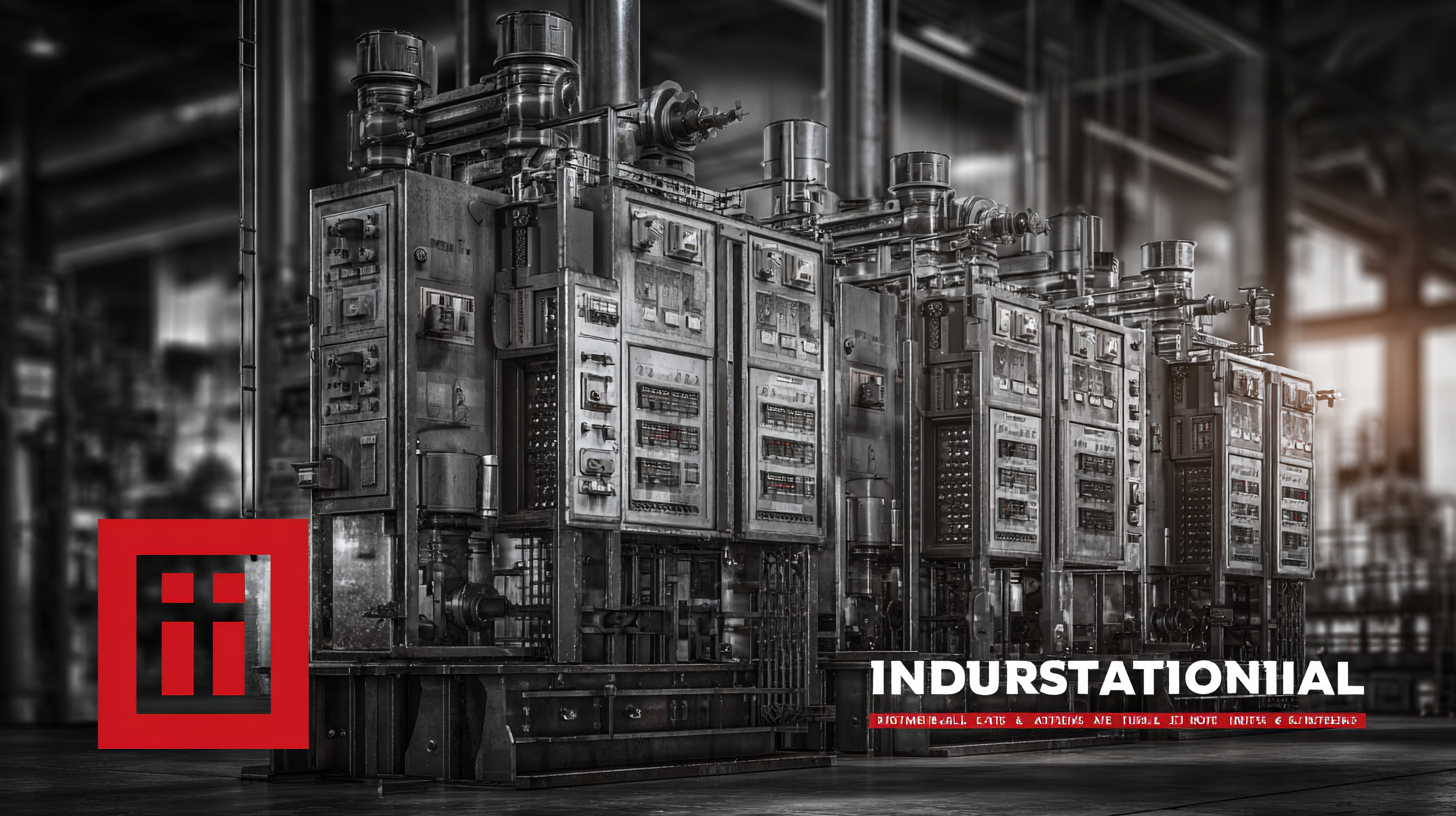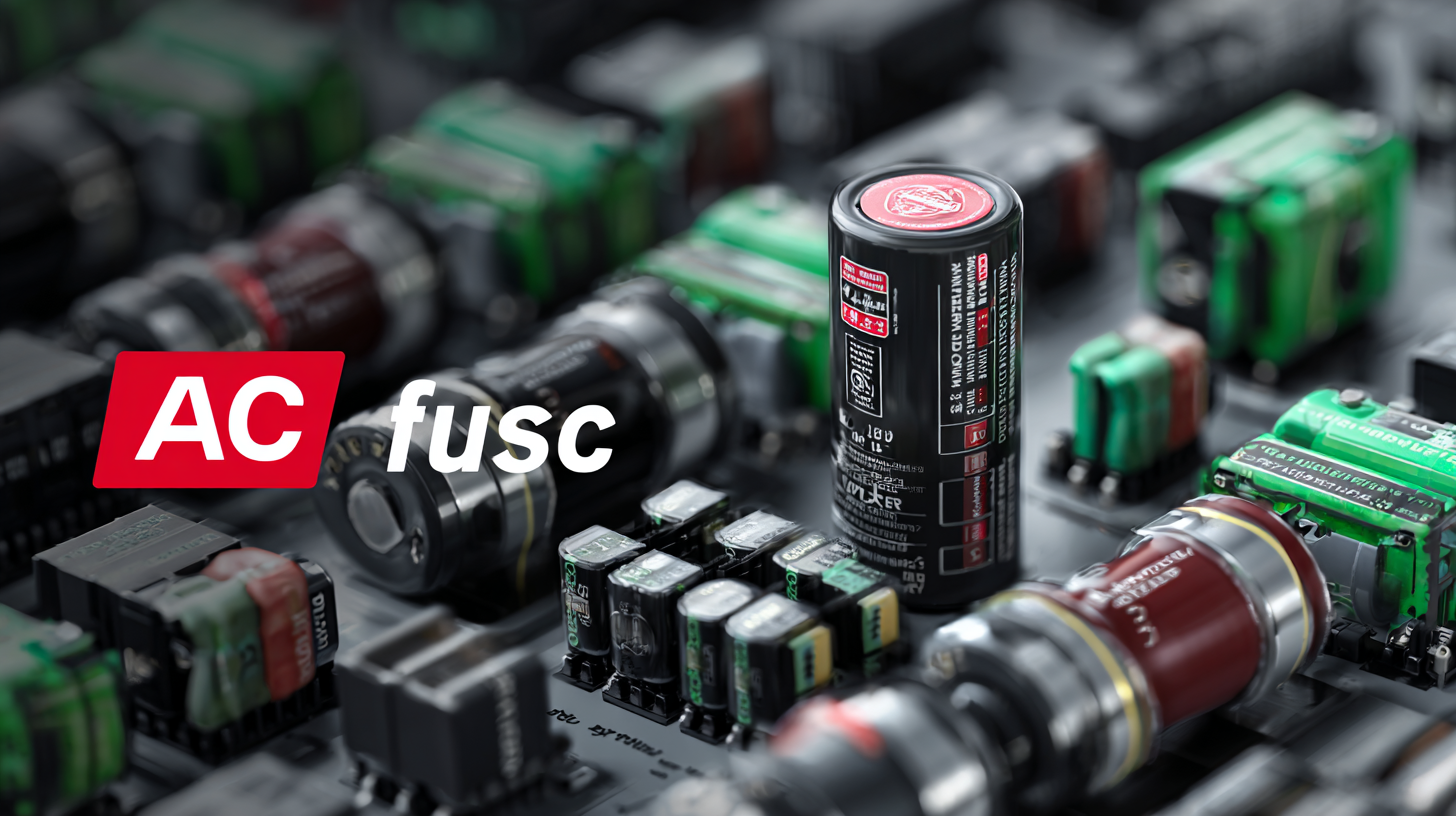
5 Key Industries Using Best AC Industrial Fuses: 7 Reasons They Depend on Reliable Protection
In today's fast-paced industrial landscape, the reliability of electrical components is paramount, particularly in managing safety and operational efficiency. The AC Industrial Fuse stands out as a critical protective element across various sectors, safeguarding equipment and processes from electrical faults. According to a report by Technavio, the global industrial fuse market is projected to grow significantly, driven by increased investments in electrical infrastructure and smart manufacturing technologies, with a compound annual growth rate (CAGR) of over 5% expected through 2025. Industries such as manufacturing, oil and gas, transportation, food processing, and pharmaceuticals are increasingly reliant on high-quality fuses to prevent system failures and mitigate costly downtime. These sectors highlight the necessity of adopting advanced protective devices like AC Industrial Fuses to ensure continuity and safety, underscoring their role in modern industrial operations.

Key Industries Leveraging Industrial Fuses for Enhanced Operational Reliability
In today’s industrial landscape, the reliance on efficient and reliable protection systems is more crucial than ever. Key industries such as manufacturing, energy, transportation, and pharmaceuticals are leveraging industrial fuses to enhance their operational reliability.
By utilizing the best AC industrial fuses, these sectors can safeguard their equipment from overloads and short circuits, thereby minimizing downtime and maintaining productivity. The ability of industrial fuses to respond quickly to electrical faults ensures that delicate machinery and other assets remain protected, reducing the risk of costly repairs and operational disruptions.
Furthermore, industries like data centers and construction are increasingly leaning on robust protection solutions. In data centers where continuous operation is vital, industrial fuses play a critical role in preventing failures that could lead to data loss or system outages. Similarly, in construction, where heavy machinery operates under varying loads, reliable fuses provide essential protection, ensuring that projects run smoothly and safely. The strategic implementation of industrial fuses not only enhances operational efficiency but also aligns with the growing emphasis on safety and risk management in these high-stakes environments.
The Importance of Industrial Fuses in Power Generation and Distribution
 Industrial fuses play a crucial role in the power generation and distribution sectors, serving as the first line of defense against electrical faults. According to the International Energy Agency (IEA), power losses due to electrical faults can amount to hundreds of billions of dollars each year globally. In this context, reliable industrial fuses are essential to safeguard electrical equipment and maintain uninterrupted service, as they quickly isolate faulty circuits, thus preventing costly downtime and damage.
Industrial fuses play a crucial role in the power generation and distribution sectors, serving as the first line of defense against electrical faults. According to the International Energy Agency (IEA), power losses due to electrical faults can amount to hundreds of billions of dollars each year globally. In this context, reliable industrial fuses are essential to safeguard electrical equipment and maintain uninterrupted service, as they quickly isolate faulty circuits, thus preventing costly downtime and damage.
Moreover, a report by MarketsandMarkets indicates that the global industrial fuse market is projected to grow from USD 2.5 billion in 2020 to USD 3.1 billion by 2025, reflecting an increasing acknowledgment of the critical need for effective protection in electrical systems. Industries such as power plants and manufacturing facilities heavily depend on high-quality fuses to not only comply with stringent safety standards but also to enhance the efficiency and longevity of their operations. With advancements in fuse technology, modern industrial fuses offer improved performance features, making them a vital component in the overall reliability of power distribution systems.
How AC Industrial Fuses Ensure Safety in Manufacturing Processes
In today's fast-evolving industrial landscape, the importance of safety in manufacturing processes cannot be overstated. AC industrial fuses play a crucial role in ensuring operational integrity by providing reliable protection against electrical faults. These fuses act as a first line of defense against overloads and short circuits, preventing potential hazards that could lead to equipment damage or production downtimes. As industries increasingly automate their manufacturing processes, the necessity for robust safety mechanisms becomes even more pronounced.

The Low Voltage Motor Control Centers (MCCs) have emerged as a vital component in modern industrial settings, showcasing the synergy between advanced technologies and safety features. With the market projected to grow significantly by 2030, various sectors are leveraging intelligent control systems that enhance operational efficiency while prioritizing safety.
By integrating AC industrial fuses within these systems, manufacturers can ensure that they not only comply with safety standards but also optimize their production processes, minimizing risks associated with electrical failures. In a world where automation drives innovation, the adoption of reliable protection mechanisms like AC industrial fuses is paramount to maintaining a safe and efficient manufacturing environment.
The Role of Industrial Fuses in the Mining and Metals Sector
In the mining and metals sector, the reliability of industrial fuses plays a critical role in ensuring safety and operational efficiency. These fuses serve as vital protection mechanisms that safeguard equipment from overloads and short circuits, minimizing downtime and maintenance costs. With the increasing deployment of advanced technologies, including digital twinning and 3D data visualization, the need for robust electrical components becomes even more pronounced. As the sector integrates more sophisticated machinery, ensuring optimal performance through effective protection is essential.
Tips for ensuring reliable fuse protection in your operations include regularly inspecting fuses for wear and damage, maintaining proper installation practices, and selecting fuses appropriate for the specific voltage requirements of your equipment. Additionally, investing in smart fuses can provide real-time monitoring and alerts, enabling quicker responses to potential issues.
Furthermore, as mining technology evolves, staying updated with the latest fuse innovations can enhance both safety and efficiency. Utilizing fuses that can adapt to varying loads and operational demands will not only protect equipment but also extend its lifespan, ultimately contributing to a more sustainable mining operation.
Key Industries Utilizing AC Industrial Fuses
This chart illustrates the percentage of reliable protection needs across five key industries that depend on AC industrial fuses. The industrial sectors showcased include Mining, Metals, Construction, Oil & Gas, and Renewable Energy. Each of these industries relies on quality fuses to safeguard their operations, prevent equipment damage, and ensure safety.
Checklist for Selecting the Right AC Industrial Fuse for Your Industry Needs
When selecting an AC industrial fuse, understanding the unique needs of your industry is crucial. The selection process should take into consideration parameters such as voltage rating, current rating, and time-delay characteristics, which are vital for ensuring operational stability and safety. According to a recent report from the Power Sources Manufacturers Association, nearly 65% of industrial facilities face unplanned downtime due to fuse failures, underscoring the importance of selecting a reliable AC industrial fuse.
Additionally, compatibility with existing systems and the ability to handle environmental factors, like temperature fluctuations and humidity levels, should be prioritized. A study from the National Electrical Manufacturers Association highlights that businesses can enhance efficiency by 30% with appropriate fuse selection that caters specifically to their operational requirements. Using a comprehensive checklist that includes aspects such as compliance with regulatory standards and availability of technical support can significantly streamline the selection process, ultimately safeguarding your operations while optimizing performance.
